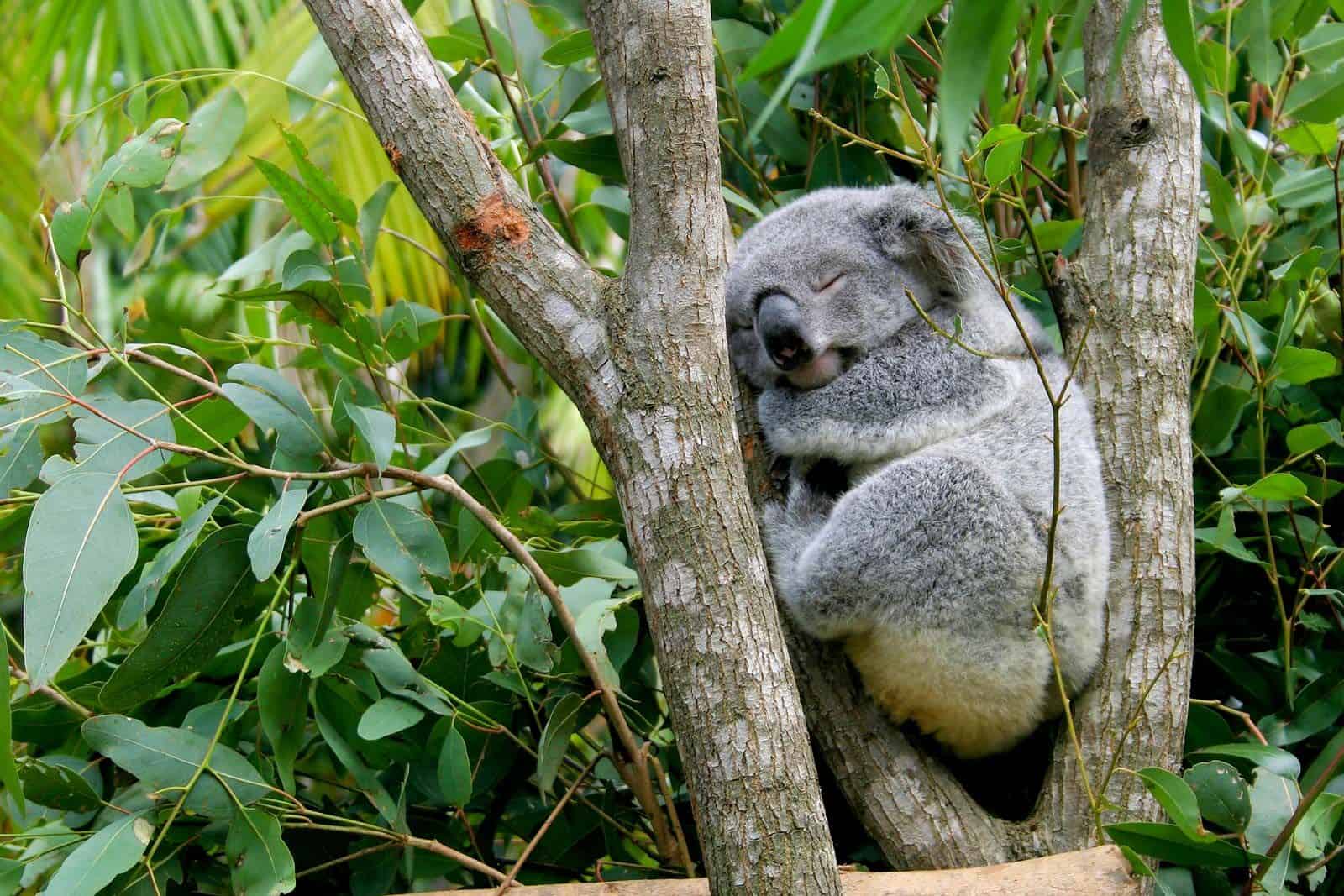Welcome to the Eucalyptus Embrace: The Koala’s Natural Habitat
Hey there, awesome parents and curious kids! ? Are you ready to jump into the fascinating world of the koala – one of Australia’s cutest and most iconic animals? They aren’t just adorable; koalas have unique habits and live in very special places that they love. Let’s explore the amazing habitat of koalas, and learn how these cuddly creatures spend their days lounging in the lap of nature!
Where Do Koalas Call Home?
Koalas are native to Australia, and their habitat is as unique as they are! They spend almost their entire lives in eucalyptus trees, which aren’t just a place to live, but also their main source of food. Do you know, there are over 700 types of eucalyptus, but koalas are picky eaters, usually only munching on the leaves from a few favorites. ?
These amazing animals are mostly found in the eastern and southeastern regions of Australia, which includes the states of Queensland, New South Wales, Victoria, and South Australia. Each of these places has forests filled with their beloved eucalyptus trees, also known as gum trees. The climate in these areas is generally mild, with warm summers and cool winters – just right for a koala’s fuzzy fur.
The Koala’s Treetop Paradise
Imagine having a home that provides you with everything – shelter, food, and safety. That’s exactly what eucalyptus forests provide for koalas! ? They live in tree branches high above the ground, which keeps them safe from predators. Each koala has its “home range,” which includes a few trees they favor for eating and lounging. These home ranges can overlap between koalas, but they’re usually pretty friendly neighbors.
During your next family nature walk, remember that koalas love a good view, preferring trees that offer an excellent overview of their surroundings. A koala might spend up to 20 hours a day sleeping, and while that sounds like a lot, they need all that rest to help them digest their tough, fibrous diet. ? When they’re not snoozing, they’re munching on leaves, and a single koala can eat up to a kilogram of leaves in a day!
The Importance of Protecting Koala Habitats
Our cuddly friends are facing some tough times as their natural habitats are threatened by deforestation, urban development, and climate change. This not only reduces their living space but also the number of eucalyptus trees available for food. This is why it’s super important to teach our little ones about the conservation of koala habitats and the environment at large. ?
By understanding where koalas live and how they interact with their environment, we can better appreciate the importance of preserving these beautiful places. Plus, it’s a fantastic way for families to bond over learning and caring for our planet’s amazing wildlife. So, let’s take a pledge together to learn more about koalas and do our part in safeguarding their homes!
Stay tuned for more fun facts and insights as we dive deeper into the koala’s charming lifestyle. Your family can discover how these adorable marsupials live and thrive in their leafy havens, and what we can do to ensure they remain a part of our world for generations to come. Keep your eyes peeled for the next part of our koala adventure; it’s going to be as captivating as a koala’s cuddle! ??

Five Things Parents Should Know About Preparing for a Koala Habitat
As enchanting as it is to imagine sharing a backyard with these dozy marsupials, creating a koala-friendly environment goes hand-in-hand with understanding their needs. Here’s what every parent should consider:
1. Planting Eucalyptus Trees
What’s a koala without its eucalyptus? For those aspiring to support local wildlife, planting a variety of koala-preferred eucalyptus trees can contribute to their habitat. Remember, it’s essential to choose species native to your specific region of Australia, as koalas have a refined palate for certain leaves. ? Providing diverse and abundant foliage is invaluable for their diet and shelter.
2. Safe and Cozy Tree Abodes
Koalas need towering trees to feel secure and at home. If you’re in a position to influence local tree conservation efforts, advocate for the preservation of mature trees. These provide the lofty platforms koalas adore. It’s about creating an intertwined canopy they can navigate safely, free from the perils on the ground. ?
3. Minimizing Human Disturbance
A serene environment is crucial for the wellbeing of koalas. Noise pollution, excessive lighting, and high human activity can be stressful and disorienting for these nocturnal creatures. When fostering a habitat, consider the impact of urban development and strive to keep their homes as unperturbed as possible. ??
4. Water Accessibility
While eucalyptus leaves provide most of the moisture koalas need, during hotter and drier periods, they may require additional water sources. Setting up water stations at a safe height can quench their thirst. Ensure these stations are well-maintained and free of potential threats, like predators or curious pets. ?
5. Community Engagement and Education
Creating a koala-friendly habitat isn’t a solo mission. Discussing with neighbors, engaging with local councils or wildlife groups, and educating children on koala conservation can lead to greater habitat protection efforts. Fostering a community that values and protects its furry residents is vital. ?
Remember, where koalas thrive, so does a multitude of other species. By advocating for and contributing to koala habitats, you’re not only ensuring these adorable creatures have a home, but you’re also supporting an entire ecosystem. Let’s all do our part in keeping the eucalyptus embrace a welcoming place for koalas! ??
For more great fun click here. For more information see here
Disclaimer
The articles available via our website provide general information only and we strongly urge readers to exercise caution and conduct their own thorough research and fact-checking. The information presented should not be taken as absolute truth, and, to the maximum extent permitted by law, we will not be held liable for any inaccuracies or errors in the content. It is essential for individuals to independently verify and validate the information before making any decisions or taking any actions based on the articles.




